Education features
Hosted by the Betty Irene Moore School of Nursing, the Nursing Science and Health-Care Leadership Graduate Degree program is composed of faculty from across campus with expertise in nursing, medicine, health informatics, nutrition, biostatistics, public health and other fields. A graduate group allows the School of Nursing to leverage the university's strengths in interdisciplinary learning, innovative technology, state-of-the-art evidence-based practice, contemporary leadership and management training.
Click the links below to read more about some of the unique courses offered through the Nursing Science and Health-Care Leadership program.
Love of sciences leads to life of teaching
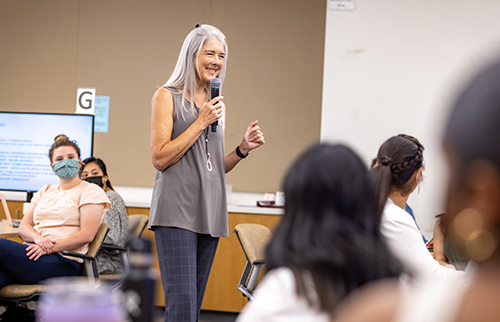 As a nurse, Shana Ruggenberg found an interest in teaching other nurses. That passion led her to earn her education degrees and where she is today, leading the school’s Master’s Entry Program in Nursing.
As a nurse, Shana Ruggenberg found an interest in teaching other nurses. That passion led her to earn her education degrees and where she is today, leading the school’s Master’s Entry Program in Nursing.
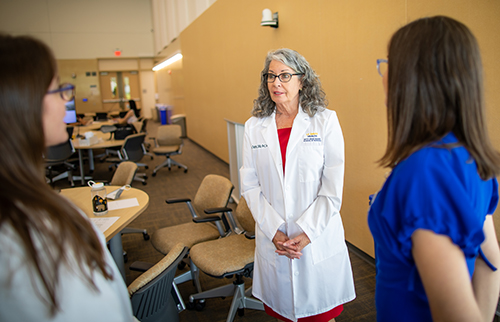 Meet the new physician assistant program director, Teresa Thetford. An intrigue in science led Teresa to the physician assistant (P.A.) profession. A passion to prepare future providers landed her in academia.
Meet the new physician assistant program director, Teresa Thetford. An intrigue in science led Teresa to the physician assistant (P.A.) profession. A passion to prepare future providers landed her in academia.
Curriculum shifts in health care education
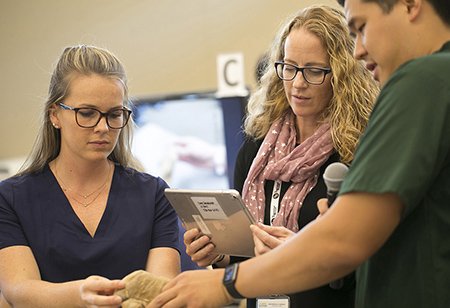 New curriculum framework prepares Doctor of Nursing Practice students to think holistically and primes them to improve current systems of care. Concept-based curriculum begins the first day of online courses.
New curriculum framework prepares Doctor of Nursing Practice students to think holistically and primes them to improve current systems of care. Concept-based curriculum begins the first day of online courses.
The school’s faculty share commitment to achieve impact through teaching, research and practice
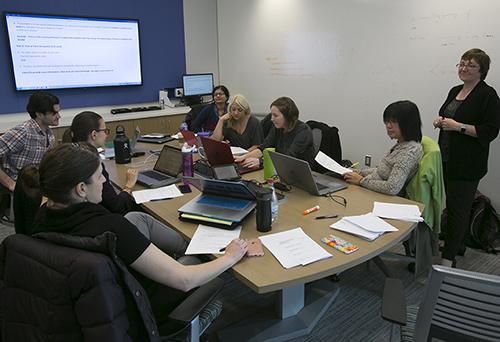 More than 55 faculty from various disciplines make up the educational team at the School of Nursing. They bring expertise from multiple backgrounds to prepare students as future health care leaders. Faculty bring current clinical expertise, nursing-science research leadership and a commitment to change the status quo.
More than 55 faculty from various disciplines make up the educational team at the School of Nursing. They bring expertise from multiple backgrounds to prepare students as future health care leaders. Faculty bring current clinical expertise, nursing-science research leadership and a commitment to change the status quo.
Signing up to innovate, suiting up to be the first
 The inaugural class in the new Doctor of Nursing Practice — Family Nurse Practitioner Degree Program has the unique opportunity to help shape the new program for future students.
The inaugural class in the new Doctor of Nursing Practice — Family Nurse Practitioner Degree Program has the unique opportunity to help shape the new program for future students.
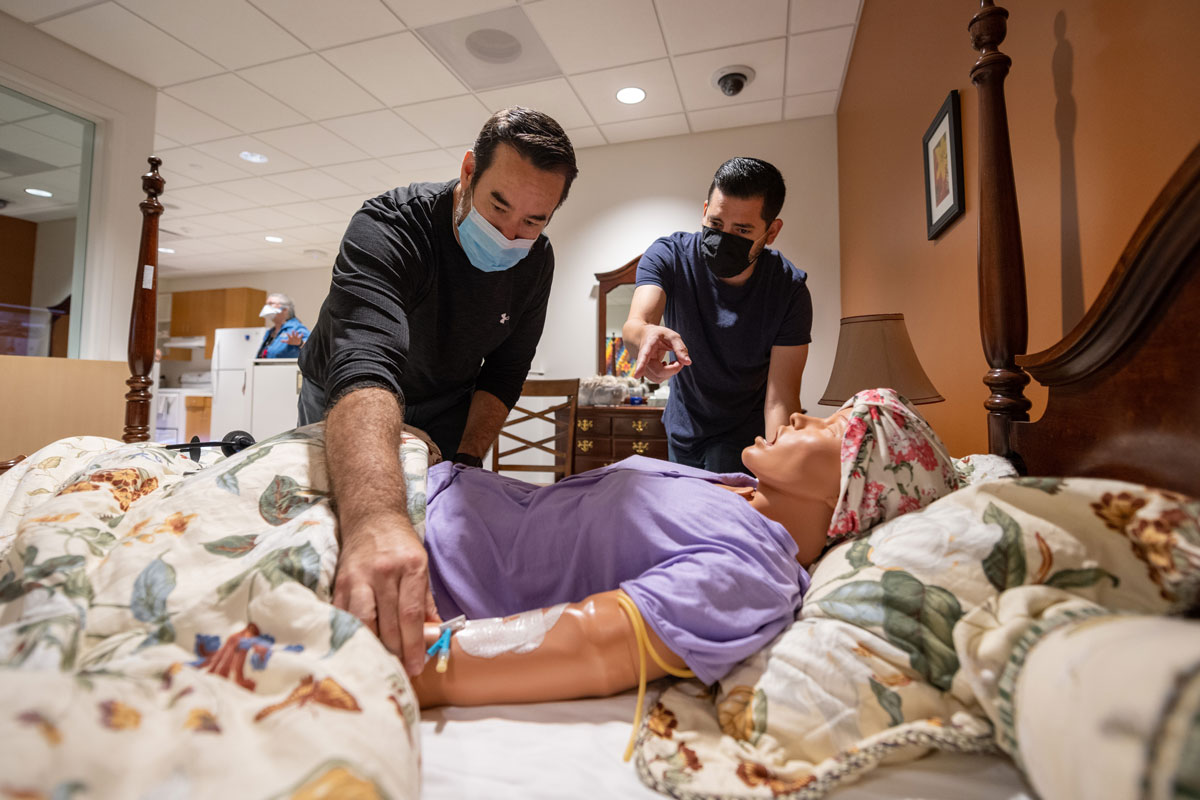 A team of actors and high-tech simulation suites bring to life real situations that prepare nursing students for complex and emotionally charged situations they can expect to experience as nurses.
A team of actors and high-tech simulation suites bring to life real situations that prepare nursing students for complex and emotionally charged situations they can expect to experience as nurses.
Changing thinking to improve outcomes
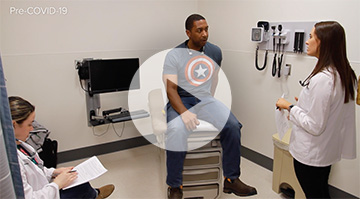 The new Doctor of Nursing Practice Degree Program is built on a model of innovative practice. Program director Kathryn Sexson discusses how the school plans to inspire students to integrate innovation in their practice.
The new Doctor of Nursing Practice Degree Program is built on a model of innovative practice. Program director Kathryn Sexson discusses how the school plans to inspire students to integrate innovation in their practice.
Doctor of Nursing Practice Degree provides ‘extra power of voice’
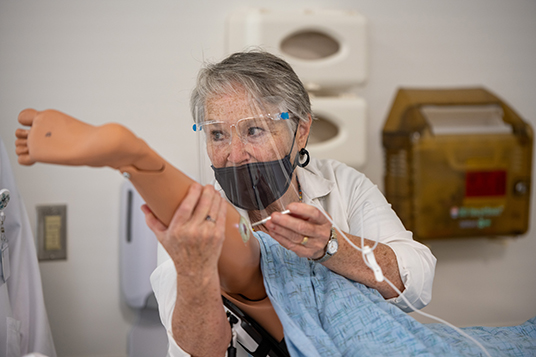
Long-time family nurse practitioner Laura Van Auker shares her journey to become a nurse practitioner (N.P) and then earn a Doctor of Nursing Practice (DNP) degree. Although skeptical at first, she discovered the advanced degree allowed her to make a broader difference in patient outcomes, a bigger impact on the next generation of N.P.s and the chance to be heard in the policy arena.
Why a Doctor of Nursing Practice Degree?
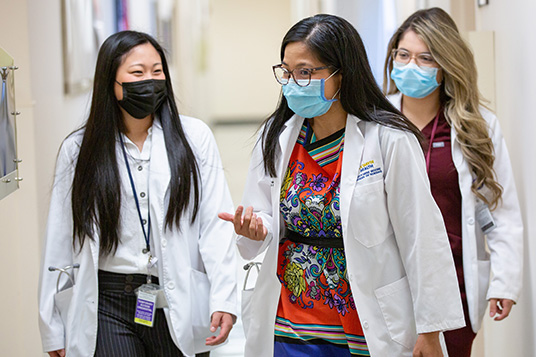
As a family nurse practitioner, Chris de Belen-Wilson manages the totality of a patient’s care. To do so, she says she needs to better understand what’s happening for patients outside of the clinical setting. A clinician educator at the School of Nursing, Chris shares her story of why she seeks nursing’s highest practice degree, the Doctor of Nursing Practice (DNP).
Humility serves as cornerstone of diversity, inclusion
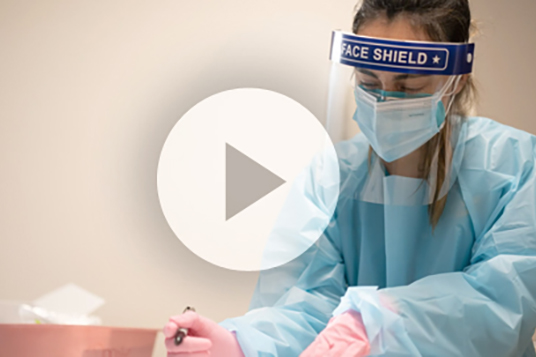
New Doctor of Nursing Practice program provides foundation for future providers to look at data through lens of health disparities to break down barriers and advance health care equity for the future. Students, and their perspectives, will further the vision.
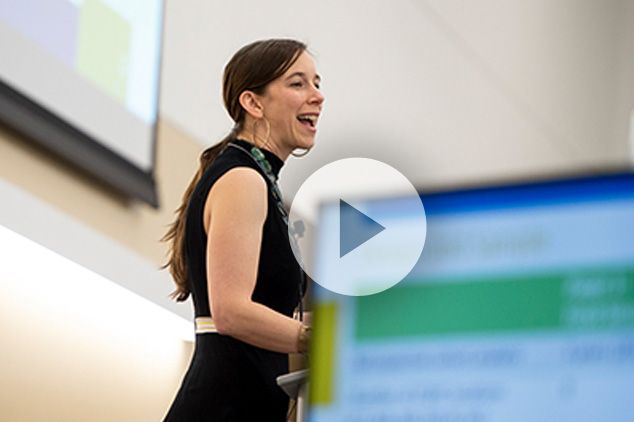
Leadership is a core value woven throughout all the graduate-degree programs at the School of Nursing. But how is leadership taught? What exactly does that mean? Two faculty discuss both the importance of the development of nurse leaders and how those skills are woven into the curriculum.
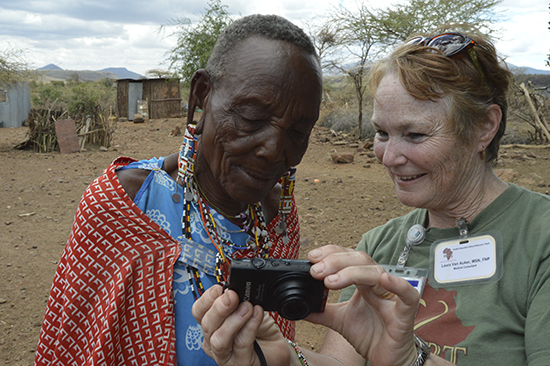
Laura Van Auker’s partnership and teaching at the University of Nairobi School of Nursing led to new collaborations benefiting family nurse practitioner and physician assistant students here at the UC Davis School. A Food as Medicine course prepares students to enhance multicultural dietary counseling skills and strengthen their cultural humility.
Simulating a continuum of care
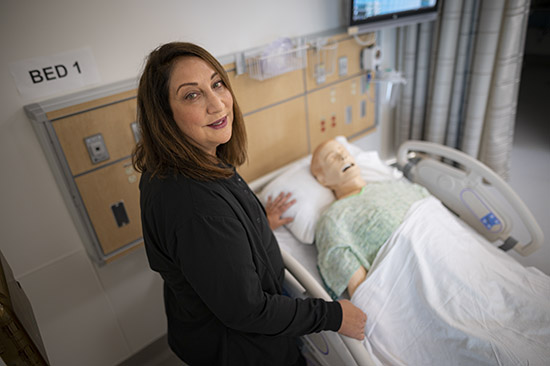
A Q & A with simulation expert Amy Nichols explores the use of high-tech simulation suites in health professions education. She discusses how simulation ensures students experience situations to become compassionate, competent and knowledgeable care providers.
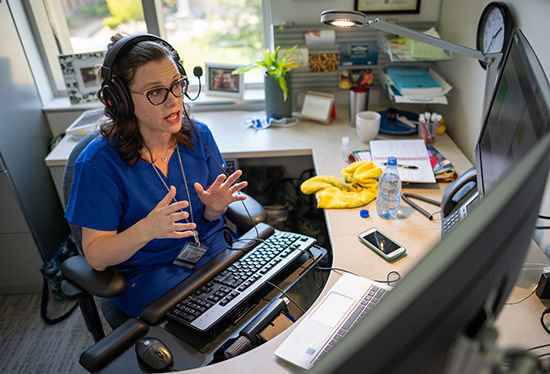
Now, 10 months into remote learning, School of Nursing faculty continue to adopt technologies to fit online education to ensure students successfully adapt, and thrive, in virtual environments.
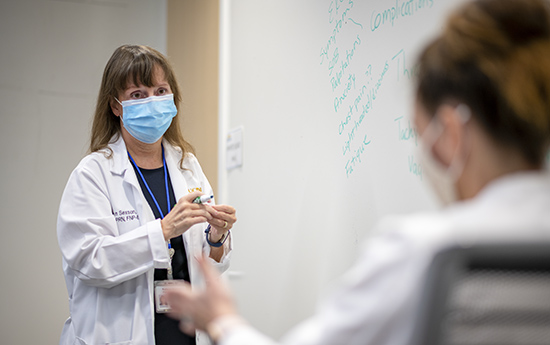
Family nurse practitioner program director Kathryn Sexson says something special is happening at the UC Davis nursing school where an interprofessional faculty team collaborate to support and mentor future providers.
Future nurses design tools to help smokers quit
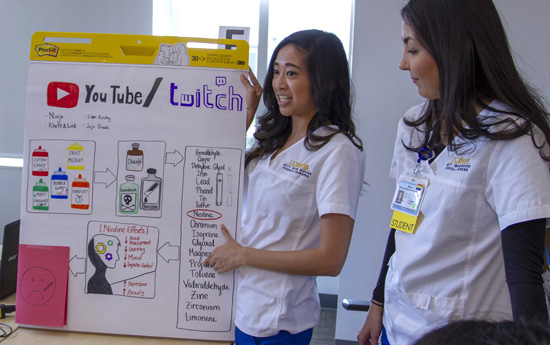
Former smokers and tobacco treatment experts partner with nursing students to design innovative high-tech solutions to stop tobacco use as part of the Technology and Innovations in Health Care course. The course is designed for nursing students to think creatively about the practice, process and delivery of health care.
Understanding learning before teaching
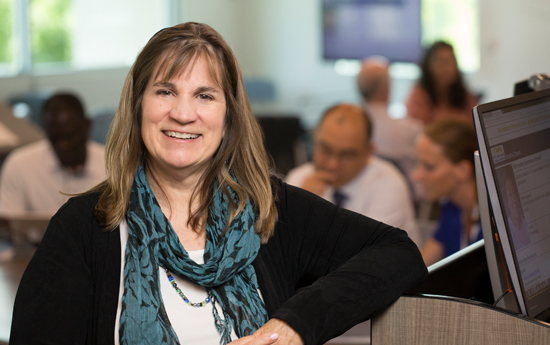
The Health Professions Educator Graduate Academic Certificate Program prepares graduate students at the Betty Irene Moore School of Nursing at UC Davis as clinical instructors and academicians. Participants study the science of learning to better understand the many different ways people learn as well as a variety of method in teaching to meet those varying needs.
Nursing students experience poverty
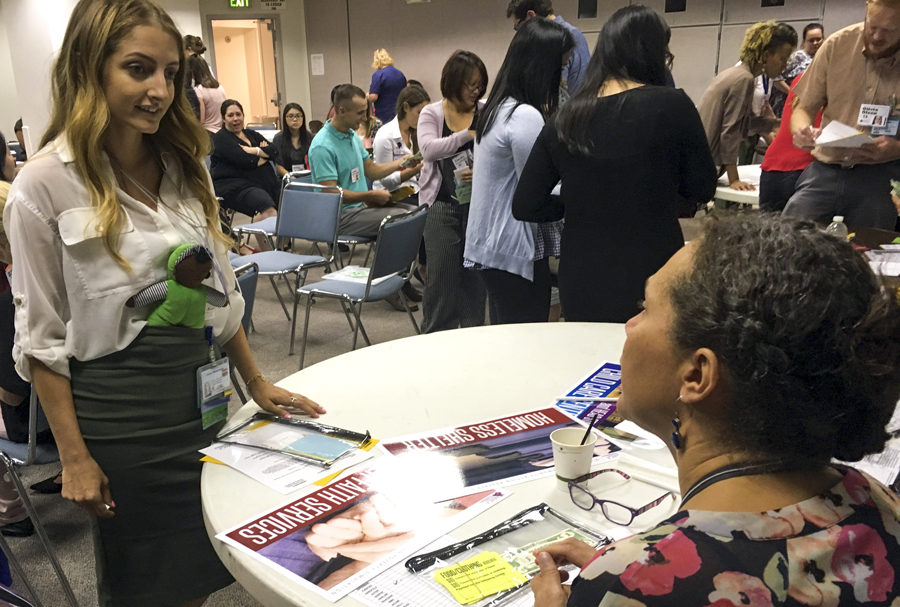
Master’s Entry Program in Nursing students participated in a four-hour simulation to better understand what it is like to live in poverty. The experience provides future nurses a glimpse of the barriers many people face in trying to access health care services.
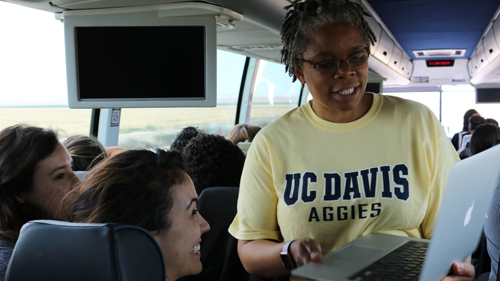
Graduate students in medicine and nursing, local community members, and faculty and staff from the UC Davis School of Medicine, the UC Davis Program in Public Health and the Betty Irene Moore School of Nursing at UC Davis, took a road trip down Highway 99 to learn about the history and people of California’s Central Valley.
Partnering with providers in Humboldt County
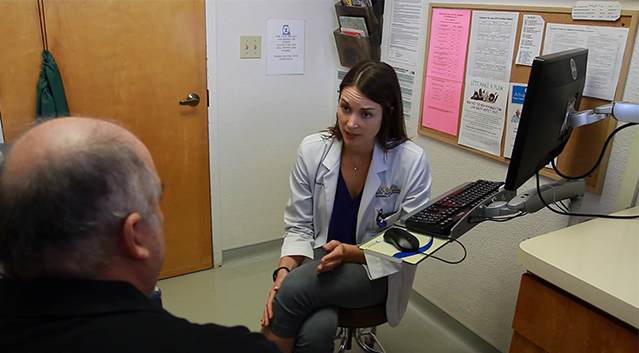
The Betty Irene Moore School of Nursing at UC Davis partners with health organizations and providers in Humboldt County to provide expanded rural clinical experiences for physician assistant and nurse practitioner students.
Improving quality in health care
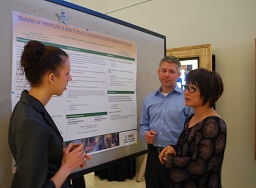
Redesigning health-care systems to be safer, more effective and more efficient is complex work that is more fully understood when health-care professionals actually engage with quality improvement efforts in the settings where care is delivered and as part of interprofessional teams. For that reason, the new Improving Quality in Health Care course piloted in 2012-13 at the UC Davis schools of health employs a learn-by-doing approach in which students actively test and analyze ongoing quality improvement interventions in the field. “You have to be operating in a real, working health-care environment to fully understand what your specific quality improvement challenges are,” said Debra Bakerjian, one of the co-creators of the course.





